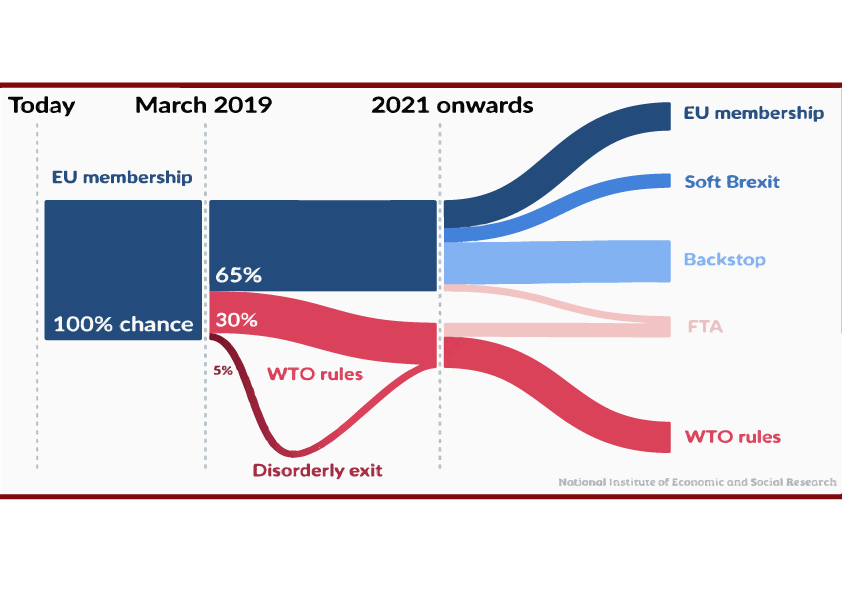Economic Impact of the Withdrawal Agreement: Written Evidence to Treasury Committee ahead of the Oral Evidence Session: “The UK’s economic relationship with the European Union” held on 3rd December 2018
 Pub. Date
Pub. Date
 Pub. Type
Pub. Type

You can also view the evidence as submitted to the Treasury Committee on the Treasury Committee website
The UK is set to leave the European Union at the end of March 2019. The process of leaving was triggered by the result of the Advisory Referendum held on 23 June 2016, which led to invocation of Article 50 on 29 March 2017. The Withdrawal Agreement agreed with the EU on 25 November 2018 gives a concrete basis for understanding the impact on the UK economy from EU Exit. It is not at all certain that the current Withdrawal Agreement is the one that will be implemented on Exit and there are a number of other scenarios that may transpire. It therefore is quite sensible to consider a number of alternate scenarios in order to evaluate the consequences of one form of Exit as opposed to another but also to help formulate policies that may militate against some of the more extreme impacts arising from Exit.
The scenarios presented by the Institute, and also by HMG and the Bank of England, are not specific forecasts of the state of the economy at some point in the future, but are statements that allow us to compare different long run outcomes (steady-state equilibria) under the various forms of Exit in which the extent of frictions on trade in goods and services, the scale of foreign direct investment and net migration differ. Even though there are examples of one or two industrial sectors that may benefit marginally from Exit, the consistent result from these analyses is that national income will be lower than it would otherwise be under the current trade and service agreements that the UK observes as an EU member. The central case we find, with which there is a high degree of consensus, is that the implication of the proposed Withdrawal Agreement when compared to the hypothetical case in which the UK stays in the EU is a loss of some 3% of income per head.
You can read the Treasury Committee's final report on the economic impact of the Withdrawal Agreement and Political Declaration here.



















